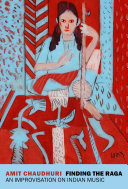
Finding the Raga
An Improvisation on Indian Music
- اطلاعات
- نقد و بررسی
- دیدگاه کاربران
نقد و بررسی

January 1, 2021
A novelist explores his ardor for Hindustani classical music. In addition to being an acclaimed novelist, Chaudhuri is an accomplished singer of khayal, the most prominent genre of North Indian classical music. He first studied it when he was a teenager in Bombay, frustrated in his efforts to become a Western-style singer/songwriter � la Neil Young and Bob Dylan. This wasn't as simple a leap as choosing a new genre to perform. "Indian classical music is as incomprehensible to most Indians as it was to the English" he writes, and raga (and its various subcategories) is a challenging music to perform and describe. Much of the book betrays this struggle, and Chaudhuri sometimes wanders deep in the musicological weeds when exploring the music's complex rhythmic and melodic patterns. Though he provides some points of comparison to Western music, from Beethoven to John Lennon, there's little that's analogous. A Beethoven symphony, he writes, represents actions and events while a raga evokes a state of being: "The raga is not about the world; it's of it." Early on, the author concedes that an orderly explanation of the music is out of his grasp, and the first section, "Alaap," which refers to the introductory section of a raga, consumes two-thirds of the book. The text is engrossing when Chaudhuri speaks personally of his own experiences with the music: how he inherited his mother's love for singing, raga's uneasy relationship with Hindu religious tradition, its connection to poetry, and the feeling of transcendence it can deliver. Those looking for an orderly introduction to the music will be disappointed, but directness has never been Chaudhuri's goal. As both a writer and singer, "I have a tendency not to come to the point." Regardless, fans of the music, and those attuned to his more impressionistic approach, will see the charm in it. A deliberately digressive foray into an enduring yet slippery style of music.
COPYRIGHT(2021) Kirkus Reviews, ALL RIGHTS RESERVED.

January 1, 2021
Chaudhuri--novelist, poet, essayist, musician--has composed a syncretic work that draws on a great variety of Western and Indian sources and genres, combines memoir and musicology, and reads like an essay. At times the vocabulary is technical, yet one doesn't necessarily feel instructed. This narrative could be studied, but it's nothing like a textbook. Instead, it is an inquiry into a method and a way of life, a work of praise and of belief suspended: "To suddenly not know what to do next, to be a loose end before going somewhere, is to be listening." Chaudhuri investigates the origins of the raga, a form of Indian classical music, and describes how his life changed when he became a practitioner and performer of ragas. Some ragas are performed in the morning, others in the evening; some during the monsoon, others during the dry winter months. His life, even in England, was transformed by this musical devotion, and his chronicle, like a raga, is a wonderful exposition of becoming.
COPYRIGHT(2021) Booklist, ALL RIGHTS RESERVED.




دیدگاه کاربران